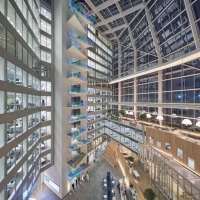January 29, 2020
People ten times more likely to stay in their job for friendships than a pay rise
 Following reports that job applications on the first working Monday of the New Year spiked by 89 percent compared to the average Monday in December, many UK businesses may be missing a trick in their efforts to retain staff, new research has suggested. When researchers commissioned by Eko asked 1,000 employees what factors would make them stay in their job for longer, they were ten times more likely to stay put for friendships than for a pay rise. Indeed, only 3 percent of workers cited a pay rise as something that would make them stay with their employer for longer. (more…)
Following reports that job applications on the first working Monday of the New Year spiked by 89 percent compared to the average Monday in December, many UK businesses may be missing a trick in their efforts to retain staff, new research has suggested. When researchers commissioned by Eko asked 1,000 employees what factors would make them stay in their job for longer, they were ten times more likely to stay put for friendships than for a pay rise. Indeed, only 3 percent of workers cited a pay rise as something that would make them stay with their employer for longer. (more…)









 Getting on well with colleagues gives workers greater job satisfaction than having a good salary, new research has claimed. “
Getting on well with colleagues gives workers greater job satisfaction than having a good salary, new research has claimed. “
 Most executives around the world are out of touch with what it takes to lead effectively and for their businesses to stay competitive in the digital economy, a new
Most executives around the world are out of touch with what it takes to lead effectively and for their businesses to stay competitive in the digital economy, a new 
























December 18, 2019
Anthropology might hold answers to the most difficult workplace challenges
by Christopher Diming • Comment, Workplace design
(more…)